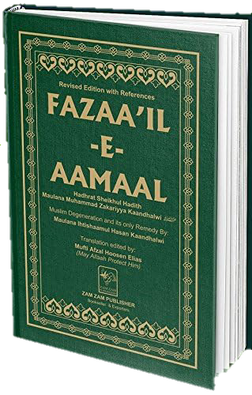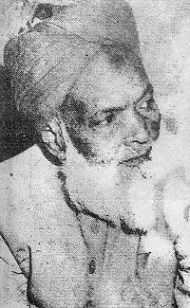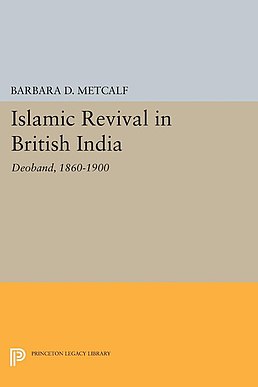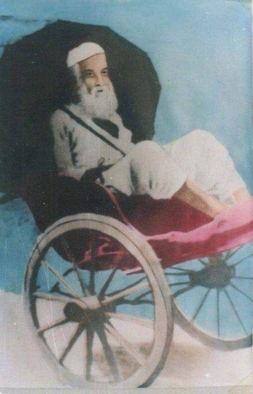
The Deobandi movement or Deobandism is a revivalist movement within Sunni Islam that adheres to the Hanafi school of law. It formed in the late 19th century around the Darul Uloom Madrassa in Deoband, India, from which the name derives, by Muhammad Qasim Nanautavi, Rashid Ahmad Gangohi, and several others, after the Indian Rebellion of 1857–58. They consider themselves the continuation of Ahlus Sunnah wal Jamaat. The main purpose of this movement was to reject the grave worshipping, shirk and protect the orthodoxy of Islam from Bidah, as well as the influence of non-Muslim cultures on the Muslim of South Asia. The movement pioneered education in religious sciences through the Dars-i-Nizami associated with the Lucknow-based ulema of Firangi Mahal with the goal of preserving traditional Islamic teachings from the influx of modernist, secular ideas during British colonial rule. The Deobandi movement's Indian clerical wing, Jamiat Ulema-e-Hind, was founded in 1919 and played a major role in the Indian independence movement through its participation in the Pan-Islamist Khalifat movement and propagation of the doctrine of composite nationalism. The movement shares several similarities with Wahhabism.

Bahishti Zewar is a volume of Deobandi beliefs and practices written by Mawlānā Ashraf Ali Thanvi. The book is comprehensive handbook of fiqh, Islamic rituals and morals, it is especially aimed at the education of girls and women. The volume describes the Five Pillars of Islam and also highlights more obscure principles. For years it has remained a favorite with the people of the Indian subcontinent as well as the Indian Muslim diaspora all over the world. It was originally written in the Urdu language but has been translated into a host of other languages including English.
Usha Sanyal is an Indian scholar and historian of Islam specializing in the Barelvi movement. She is visiting assistant professor of history at Wingate University in North Carolina.

From a historical perspective, Professor Ishtiaq Ahmed of the University of Stockholm and Professor Shamsul Islam of the University of Delhi classified the Muslims of the subcontinent into two categories during the era of the Indian independence movement: Indian nationalist Muslims and Indian Muslim nationalists. The All India Azad Muslim Conference represented Indian nationalist Muslims, while the All-India Muslim League represented the Indian Muslim nationalists. One such popular debate was the Madani–Iqbal debate.

Fazail-e-Amaal, authored by Zakariyya Kandhlawi between 1929 and 1964, is a book that primarily consists of treatises from the Fada'il series, originally published in Urdu. Its purpose is to inspire and motivate Muslims in their religious practices by presenting a diverse range of Islamic teachings, stories, and anecdotes. The book's popularity has led to translations in multiple languages, including English and French, establishing it as a major resource for the Tablighi Jamaat, a transnational pietistic movement. Written at the request of Ilyas Kandhlawi, the founder of Tablighi Jamaat, the book was initially named Tablighi Nisab or Curriculum for Tabligh. It is the most popular ongoing publication of Urdu literature in the present era and is extensively read due to its inclusion in the literature of the Tablighi Jamaat. The book's language is appreciated for its simplicity, clarity, and accessibility to readers.

Imdadullah Muhajir Makki was an Indian Muslim Sufi scholar of the Chishti Sufi order. His disciples include Muhammad Qasim Nanautawi, Rashid Ahmad Gangohi, and Ashraf Ali Thanwi. In the Indian Rebellion of 1857, he led the Muslims in Thana Bhawan to fight against British.
Ashraf Ali Thanwi (often referred as Hakimul Ummat and Mujaddidul Millat was a late-nineteenth and twentieth-century Sunni scholar, jurist, thinker, reformist and the revival of classical Sufi thought from Indian subcontinent during the British Raj, one of the chief proponents of Pakistan Movement. He was a central figure of Islamic spiritual, intellectual and religious life in South Asia and continues to be highly influential today. As a prolific author, he completed over a thousand works including Bayan Ul Quran and Bahishti Zewar. He graduated from Darul Uloom Deoband in 1883 and moved to Kanpur, then Thana Bhawan to direct the Khanqah-i-Imdadiyah, where he resided until the end of his life. His training in Quran, Hadith, Fiqh studies and Sufism qualified him to become a leading Sunni authority among the scholars of Deoband. His teaching mixes Sunni orthodoxy, Islamic elements of belief and the patriarchal structure of the society. He offered a sketch of a Muslim community that is collective, patriarchal, hierarchical and compassion-based.

Rashīd Aḥmad ibn Hidāyat Aḥmad Ayyūbī Anṣārī Gangohī was an Indian Deobandi Islamic scholar, a leading figure of the Deobandi jurist and scholar of hadith, author of Fatawa-e-Rashidiya. His lineage reaches back to Abu Ayyub al-Ansari.

Abdul Majid Daryabadi was an Islamic scholar, philosopher, writer, critic, researcher, journalist and exegete of the Quran in Indian subcontinent in the 20th century. He was as one of the most influential Indian Muslim scholar and was much concerned with modernism and comparative religions and orientalism in India. In his early life, he became sceptical of religion and called himself a "rationalist". For almost nine years, he remained away from religion but repented and became a devout Muslim. He was actively associated with the Khilafat Movement, Royal Asiatic Society, Aligarh Muslim University, Nadwatul Ulama, Darul Musannefin Shibli Academy and several other leading Islamic and literary organisations. He was disciple of Ashraf Ali Thanwi and Hussain Ahmed Madani.

Mahmud Hasan Deobandi was an Indian Muslim scholar and an activist of the Indian independence movement, who co-founded the Jamia Millia Islamia university and launched the Silk Letter Movement for the freedom of India. He was the first student to study at the Darul Uloom Deoband seminary. His teachers included Muhammad Qasim Nanautawi and Mahmud Deobandi, and he was authorized in Sufism by Imdadullah Muhajir Makki and Rashid Ahmad Gangohi.
Barbara Daly Metcalf is a professor emeritus of history at the University of California, Davis. She is a specialist in the history of South Asia, especially the colonial period, and the history of the Muslim population of India and Pakistan. She previously served as the dean of the College of Letters and Science at the University of California, Davis, and as the Alice Freeman Palmer Professor of History at the University of Michigan (2003–2009). She was the president of the Association for Asian Studies in 1994 and the president of the American Historical Association in 2010–11.
-ji is a gender-neutral honorific used as a suffix in many languages of the Indian subcontinent, such as Hindi, Nepali and Punjabi languages and their dialects prevalent in northern India, north-west and central India.

Muḥammad Shafī‘ ibn Muḥammad Yāsīn ‘Us̱mānī Deobandī, often referred to as Mufti Muhammad Shafi, was a Pakistani Sunni Islamic scholar of the Deobandi school of Islamic thought.
Abdul Bari Nadvi was an Indian Muslim scholar born in the Barabanki district near Lucknow, Uttar Pradesh, India. His father Hakim Abdul Khaliq was a student of Maulana Mohammad Naeem Farangi Mahli. His younger brother Saad-ud-Din Ansari was among the founding members of the Jamia Millia Delhi and taught there for a long time. Abdul Bari Nadvi died in Lucknow in 1976. He was survived by four sons and two daughters, all of whom are now deceased.

Idris Kandhlawi was a Pakistani Sunni scholar during the mid-twentieth century, widely recognized for his contributions to various fields of Islamic studies, including hadith, Quranic studies, Islamic jurisprudence, Prophetic biography, and theology. Holding the titles of Sheikh al-Hadith and Sheikh al-Tafsir, he traced his lineage to Abu Bakr on his father's side and Umar on his mother's side. He studied in Thana Bhawan under Ashraf Ali Thanwi. He studied hadith, first at Mazahir Uloom under Khalil Ahmad Saharanpuri, and later at Darul Uloom Deoband under Anwar Shah Kashmiri. He started his professional career at Madrasa Aminia and later e went to Darul Uloom Deoband. In 1929 he took a position in Hyderabad State, where he had access to the Asafia Library. This experience enabled him to produce a five-volume Arabic commentary on Mishkat al-Masabih titled Al-Taleeq al-Sabeeh, of which the first four volumes were published in Damascus. His scholarly work garnered recognition in the Arab world. He later assumed the roles of Sheikh al-Tafsir at Darul Uloom Deoband and Sheikh al-Hadith wa al-Tafsir at Jamia Ashrafia. In addition, he served as the Chancellor of Islamia University of Bahawalpur during its tenure as Jamia Abbasia.

Zafar Ahmad Usmani, was a 20th Century Sunni Muslim Jurist who became an influential figure of the Hanafi school of Sunni jurisprudence's Deobandi Movement. He also was a prominent Pakistan Movement activist.

Islamic Revival in British India: Deoband, 1860-1900 is a book authored by Barbara D. Metcalf, a professor at the University of California. Originally, this book emerged as a revised edition of her doctoral dissertation and was published in 1982 by Princeton University Press. At its core, the book focused on the Deobandi movement's formative phase, representing the first major monograph dedicated to the institutional and intellectual history of this movement. It seeks to clarify the transformative journey undertaken by Islamic scholars, commencing in the 18th century. This journey was catalyzed by the challenges faced by Indian Islam in the aftermath of the 1857 Mutiny, prompting a diverse array of approaches for resolution. Throughout her research, the author gathered pertinent materials in Urdu to present a precise depiction of Deoband's organizational structure.

The earliest Quran translations into Bengali occurred in 1389, when Shah Muhammad Sagir translated surahs of the Quran into the old Bengali language. However, full translation of the Quran from Arabic to Bengali began in the early nineteenth century.

This bibliography of Ashraf Ali Thanwi is a selected list of generally available scholarly resources related to Ashraf Ali Thanwi, a leading Islamic scholar, philosopher, writer, preacher, reformer, the author of about one thousands books. He didn't write an autobiography during his lifetime. However, Aziz al-Hasan Ghouri, an authorized disciple of Thanwi, compiled a book from 1935 to 1943, into four volumes entitled Ashraf al-Sawaneh, which is the first and most important book and prime source on the biography of Thanwi. Another Maqalat Hakeemul Ummat was compiled in 34 volumes under the supervision of Taqi Usmani, collected from about 350 publications of Thanwi. This list will include his biographies, theses written on him and articles published about him in various journals, newspapers, encyclopedias, seminars, websites etc. in APA style.










